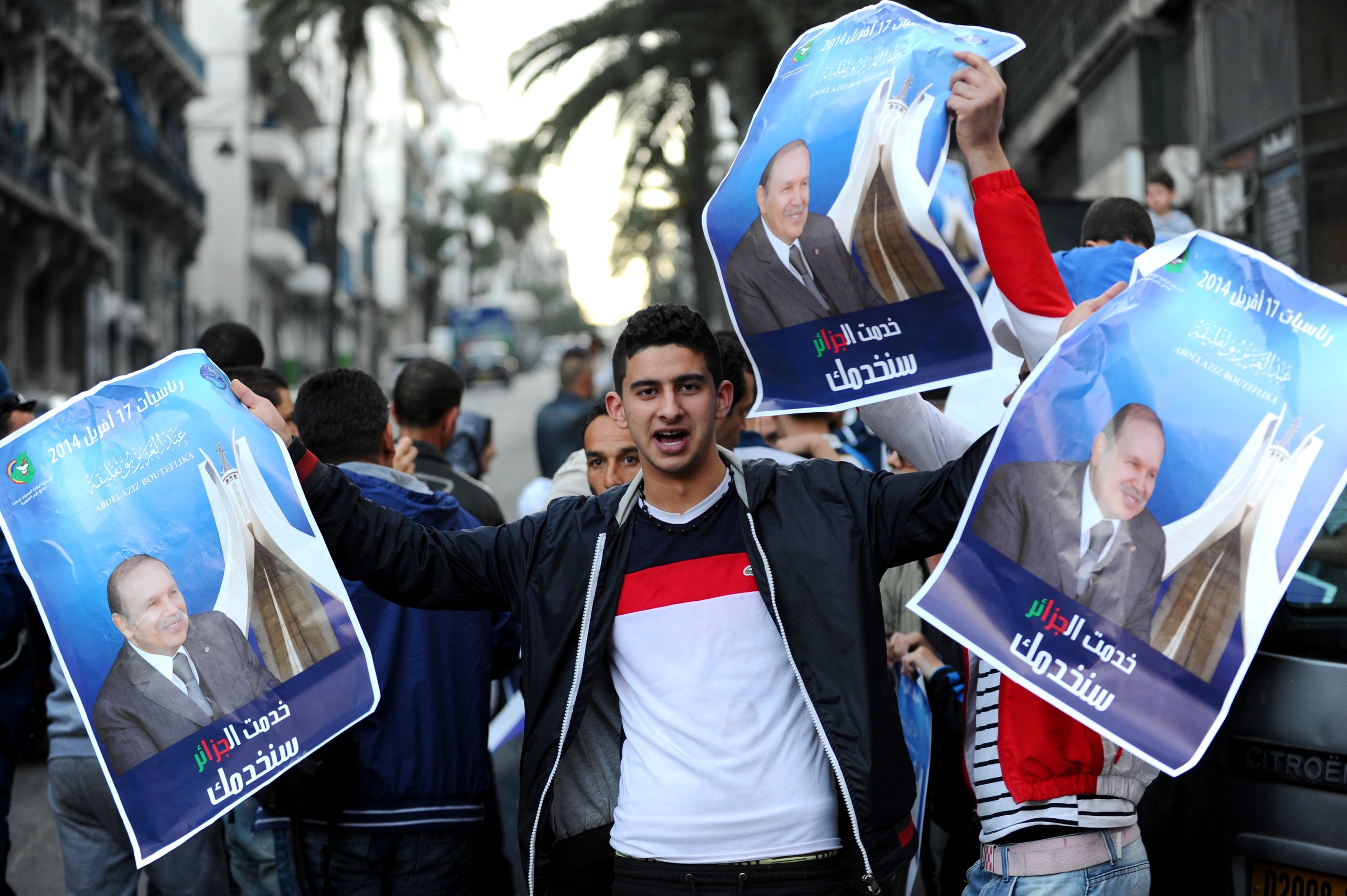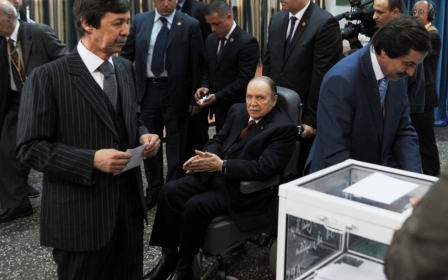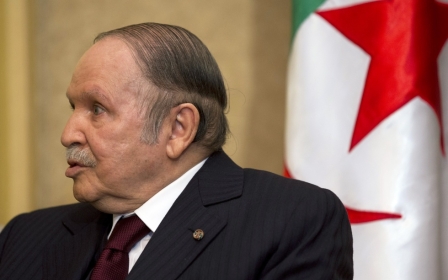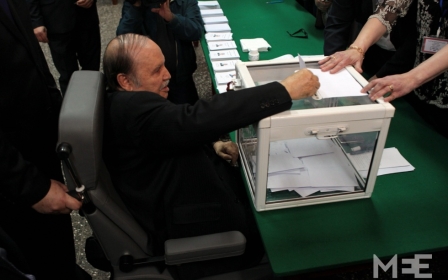Bouteflika wins fourth term in office

Algerian President Abdelaziz Bouteflika, whose poor health forced him to vote from a wheelchair in Algeria's presidential election, has won a fourth term in office with 81.53 percent of the vote, the country's interior minister announced Friday afternoon.
The 77-year-old incumbent's main rival, Ali Benflis, received 12.18 percent in an election which saw 51.78 percent of Algerians cast their ballots, Tayeb Belaiz told a news conference.
"The people have chosen freely, in a climate that was transparent and neutral," Belaiz insisted.
“In general, people are fed up," Benflis told the MEE on Thursday. "People are sure they don’t want a continuation of the current regime."
New MEE newsletter: Jerusalem Dispatch
Sign up to get the latest insights and analysis on Israel-Palestine, alongside Turkey Unpacked and other MEE newsletters
Benflis was not alone in his accusations. Abderrazaq Makri, head of the Movement of Society for Peace, Algeria's largest Islamist party, told the MEE on Friday that he also believed the election was rigged.
"We asked for an independent committee to monitor the elections," he said, "but the government continued to use their own monitors who answer to the Ministry of Interior." Makri's party sent its own monitors to polling stations who estimated that turnout was 20 percent, he said.
Makri said his party and several others are ready to unite with Benflis to take on Bouteflika's government.
"Our party, along with other opposition parties and members are working on a joint programme to challenge the government," he said.
Bouteflika's victory had been widely expected. Hundreds of his supporters gathered in Algier's Place Maurice-Audin into the early hours of Friday to celebrate his win and headlines in Friday's newspapers anticipated his re-election, despite the fact that results had not yet been announced. "The Algerians have voted for security and stability," declared newspaper Ach-Chouroq on Friday.
However, leading daily El Watan called the election "blackmail through fear", saying it would be remembered as the "election of the absurd."
The two other presidential challengers, Ali Fawzi Rebaine and Moussa Touati, both won less than one percent.
Bouteflika, ailing from a major stroke that he suffered last year, was unable to campaign for re-election in person. He made a rare appearance on Algerian state television on Thursday as he cast his vote, but didn't make any statements. An assistant had to put his vote in the envelope.
In a rare public expression, several sporadic protests erupted over the campaign. These included a number held by Barakat ("Enough" in Arabic), a group founded two months ago specifically to challenge Bouteflika's re-election bid. The demonstrations were quickly suppressed, including one on Wednesday in the capital.
"That protest got the usual treatment - the police came and over-crowded them," said London-based Algerian analyst Imad Mesdoua.
Mesdoua, along with other analysts, warn of growing tensions in the country over socio-economic grievances, particularly among young people like those who founded Barakat.
"There is a housing crisis, an unemployment crisis, and a gulf in trust between the government and that segment of the population," Mesdoua said.
Seventy percent of Algeria's 38 million citizens are under the age of 30, Mesdoua noted. "Once you understand that bulge," he said, "you understand alot about Algeria's underlying issues."
Mohamed Zitout, former Algerian diplomat and founding member of the opposition group, Rachad Movement, said the country was escalating towards chaos and predicted more protests to come.
"The Algerian society is absolutely out of their minds at the moment," said Zitout from London. "We have never seen a president in a republic being elected while in this terrible health situation and being on a disabled chair. It gives an idea about the atmosphere."
But Saber Ayoub, a London-based Algerian journalist, said he believed it was unlikely that Algerians would go to the streets in large numbers, despite the fact that "the elections were "daylight fraud and everyone knew that."
"There will be no mass protests," Ayoub said. "Benflis has no real presence in the Algerian street and most of the people have divorced themselves from politics since the first presidency of Bouteflika. If there are any protests in the near future, they will be of a socio-economic nature, but not overtly political."
-- With additional reporting from MEE News Editor Mamoon Alabassi
Middle East Eye delivers independent and unrivalled coverage and analysis of the Middle East, North Africa and beyond. To learn more about republishing this content and the associated fees, please fill out this form. More about MEE can be found here.




